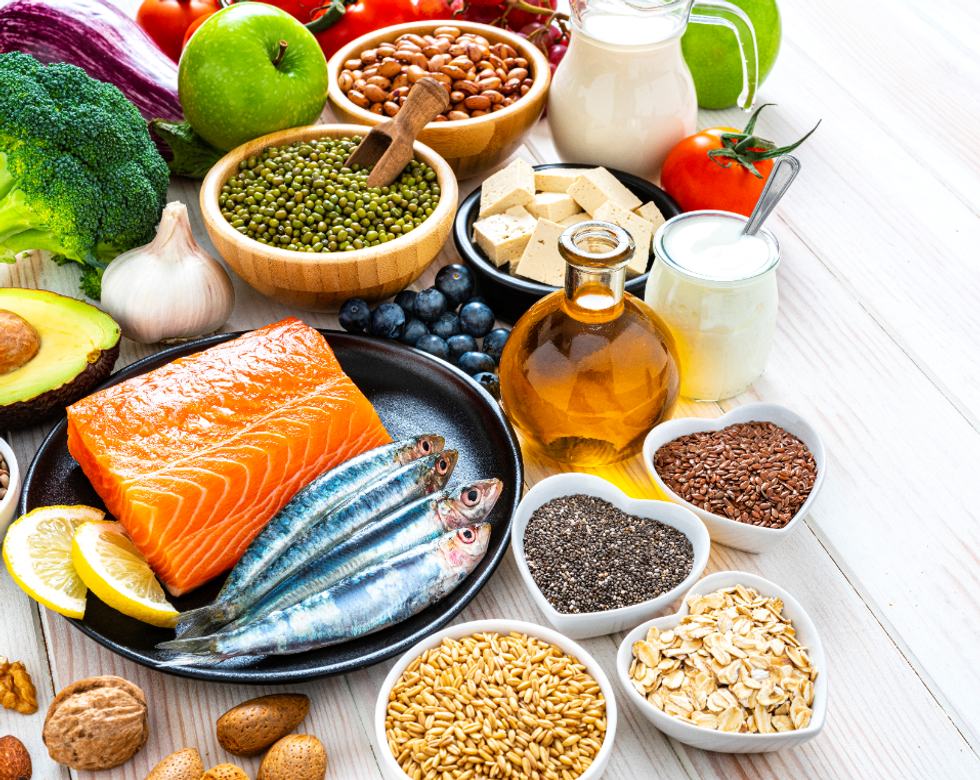Longevity win as scientists find 'strong evidence' MIND diet slows pace of ageing - key foods to eat

Mediterranean-Dash Intervention for Neurodegenerative Delay diet (MIND) slows the pace of ageing, new study suggests
|Getty Images

The MIND diet combines elements of the Mediterranean diet and the Dietary Approaches to Stop Hypertension (DASH) diet
Don't Miss
Most Read
Closely following the MIND diet can slow down the inexorable march to old age, scientists say.
While literature had suggested that people who followed the healthy diet experienced a slowdown in the processes of biological ageing and were less likely to develop dementia, until now the biological mechanism of this protection was not well understood.
“Much attention to nutrition in dementia research focuses on the way specific nutrients affect the brain” said Daniel Belsky, PhD, associate professor of Epidemiology at Columbia School of Public Health and the Columbia Aging Center, and a senior author of the study.
“We tested the hypothesis that healthy diet protects against dementia by slowing down the body’s overall pace of biological aging.”

The MIND diet emphasises plant-based foods (especially berries and leafy greens) and limited animal products
| Getty ImagesThe MIND diet combines elements of the Mediterranean diet and the Dietary Approaches to Stop Hypertension (DASH) diet, emphasising plant-based foods (especially berries and leafy greens) and limited consumption of animal products and saturated fats.
Previous studies have linked greater adherence to the diet with reduced risk of dementia. But it has also been shown to benefit heart health, diabetes, and certain cancers.
To measure the diet's impact on ageing, researchers used data from the second generation of the Framingham Heart Study, a multigenerational study designed to identify common factors or characteristics that contribute to cardiovascular disease.
Out of the 1,644 participants included in the analyses, 140 of the participants developed dementia. To measure the pace of ageing, the researchers used an epigenetic clock called DunedinPACE developed by Belsky and colleagues at Duke University and the University of Otago.
The clock measures how fast a person’s body is deteriorating as they grow older, “like a speedometer for the biological processes of ageing”, explained Belsky.
“We have some strong evidence that a healthy diet can protect against dementia,” said Yian Gu, PhD, associate professor of Neurological Sciences at Columbia University Irving Medical Center and the other senior author of the study, “But the mechanism of this protection is not well understood.” Past research linked both diet and dementia risk to an accelerated pace of biological ageing.
“Testing the hypothesis that multi-system biological ageing is a mechanism of underlying diet-dementia associations was the logical next step,” explained Belsky.
The research determined that higher adherence to the MIND diet slowed the pace of ageing as measured by DunedinPACE and reduced risks for dementia and mortality. Furthermore, slower DunedinPACE accounted for 27 percent of the diet-dementia association and 57 percent of the diet-mortality association.
LATEST DEVELOPMENTS

The MIND diet says to avoid or limit fried and fast foods
|Getty Images
“Our findings suggest that slower pace of ageing mediates part of the relationship of healthy diet with reduced dementia risk, and therefore, monitoring pace of ageing may inform dementia prevention,” said first author Aline Thomas, PhD, a Postdoc at the Columbia Department of Neurology and Taub Institute for Research on Alzheimer's Disease and the Aging Brain.
However, much remains unknown about the relationship between diet and dementia, so further studies are needed to understand this link, she adds.
MIND diet - what to eat and what to avoid
The MIND diet names 10 foods linked to improved, or delayed decline in, cognitive function, and five foods to limit.
Beneficial foods include:
- Wholegrains (three or more servings a day)
- Green leafy vegetables, such as spinach, cabbage, spring greens, kale and salad leaves (one or more servings a day)
- Other vegetables (one or more servings a day)
- Nuts (on most days)
- Beans and lentils (three or more servings a week)
- Berries, including blueberries and strawberries (two or more servings a week)
- Chicken or turkey (two or more servings a week)
- Fish (one or more servings a week)
- Olive oil (as the main oil or fat you use)
- Wine (no more than one small glass a day – more than this and it becomes more likely to harm health than help it)
Foods to avoid or limit:
- Fried or fast food (less than once a week)
- Cheese (less than once a week)
- Red meats (less than four times a week)
- Pastries and sweets (less than five times a week)
- Butter (less than one tablespoon a day)










